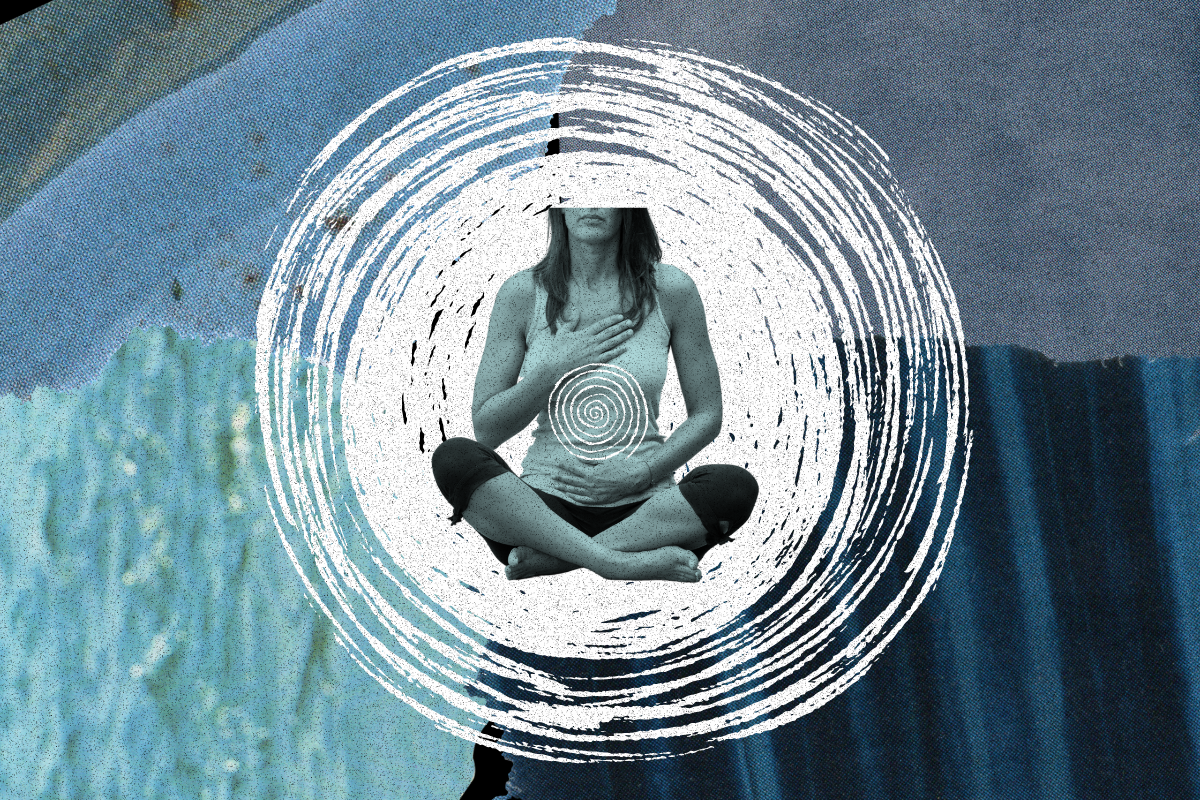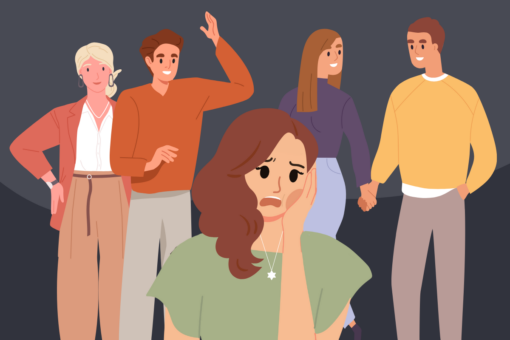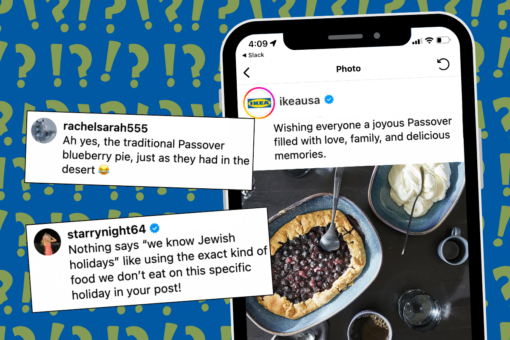The night before my second surgery for endometriosis, my dad calls. We go through all the normal questions: Do you have enough chicken soup in the fridge? Are you sure your alarm is set in time for the 5 a.m. hospital check in?
Just before we hang up, he asks if he can bless me with a mi sheberach, the traditional prayer for healing. I hesitate for a split second, then agree. The words I’ve heard dozens of times over begin. Towards the end of the swift recitation comes the part I’ve been dreading:
“V’yishlah lah bim-hera refuah sh’leimah,”
“and send to her, from the heavenly realms, a complete healing.”
The words pass. I thank my dad and hang up.
Refuah sh’leimah, the words at the heart of this prayer, make little sense as a source of dread. I’ve said them frequently throughout my life — to pray for dying grandparents, for sick friends, as an auto-response to any number of circumstances — whether I know if the person has a chance of making a complete recovery or not.
My friction with the words starts about a month before this surgery. I’m looking at myself in the mirror one morning, following another night spent with my heating pad turned all the way up, feeling groggy from a weed gummy and waking up to take more ibuprofen, tossing and turning as I try to find release from the constant pain. On nights like this, I feel like my muscles are trying to push themselves out of my skin, aching shocks flow from my hip down my left leg, a knife implants itself in my right pelvis.
This is a normal morning after a normal night with endometriosis, the chronic illness I was diagnosed with two and a half years ago. The disease comes from uterine-like tissue growing outside the uterus, and it’s nearly impossible to see or treat without undergoing surgery.
In 2021, after years of looking for answers, I underwent surgery, had as much of the endometriosis as possible excised, and got my diagnosis. I felt better for a while, but less than two years later, my symptoms returned. My nights once again became long and achy, my muscles tender to the lightest touch, my stomach bloated, my lower back rocky with cramps. After the first surgery, my goal was to feel well enough to move to New York and go to graduate school. I was a semester away from finishing when it all began to crumble: a four month wait for a doctor’s appointment, another four month wait for surgery, the decision to delay my graduation by a semester and a complete delay on my life as a person who felt well.
I’m looking at myself in the mirror that December morning, and I feel sick. As hard as it is for me to say it, there is a power in acknowledging my situation for what it is: I am a person with chronic illness. I feel sick, because I am sick. In the midst of this inner conversation, my mind turns to what I would say to anyone else in my situation. I would wish them a refuah sh’lemah. But instead of finding comfort, I feel anger rise. A complete healing? How can I ask this for myself, when I know it will never come? Haven’t the last two years taught me that, at best, I can wish for “moments of feeling well enough for a long enough period to live life mostly the way I want to, but I really can’t get too comfortable because who knows when I might start to feel like absolute shit again?” Where’s the liturgy for that prayer?
Jump forward: It’s been just over two months since the second surgery. My doctor took out “a lot” of endometriosis and told me that I “should feel better.” At my follow-up, I asked about recurrence rates with cases like mine. “It will grow back,” the doctor said. “No way to know when.” And that was that.
Fortunately, I do feel better. I’m recovered from the surgery and able to notice more energy, less back pain and cramping. No knife in my pelvis, and only one night of leg pain in the last two months. Medically, I’m healed about as completely as I can be. So I ask myself: Can this be my refuah sh’lemah?
Unsatisfied, I decide to do a little more digging. I learn that the definition of the word “shalem” stretches beyond the word “complete.” Throughout the Torah, it also translates to “safe,” “whole” and “perfect.” Sharing the same three letter root as “shalom,” it can be used to describe a state of being at peace with another entity. When I read this, something finally clicks.
I’ve heard too often that healing isn’t a straight line. While I know this to be true, living with chronic illness makes me question seeing the process as a line at all, no matter how crooked. When I visualize what “healing” alongside endometriosis might look like, my line loops backwards and forward over itself so many times that it begins to look more like a circle. A circle that contains incisions and scars, heating pads and hormones and fertility fears, but also gratitude for what I can do, joyful movement and loving friends, recalibrated ambition and an embrace of softness. In this circle, I can find a prayer not for a healing with a beginning and end, but a prayer that I’ll make peace with my own healing, whatever its borders contain.
I can’t escape the circle of circumstance that surrounds me. But my prayer can be to find peace with it and within it, to stop seeing the word “complete” as a criticism or a tease of what will never be, but as a state completely unique to me. I can pray to be sent a refuah shleimah, refu’at hanefesh u’refu-at haguf, a whole peace, a peace with my soul and a peace with my body, ill though it may be.
Perhaps in this, I can find what it means to feel complete.



